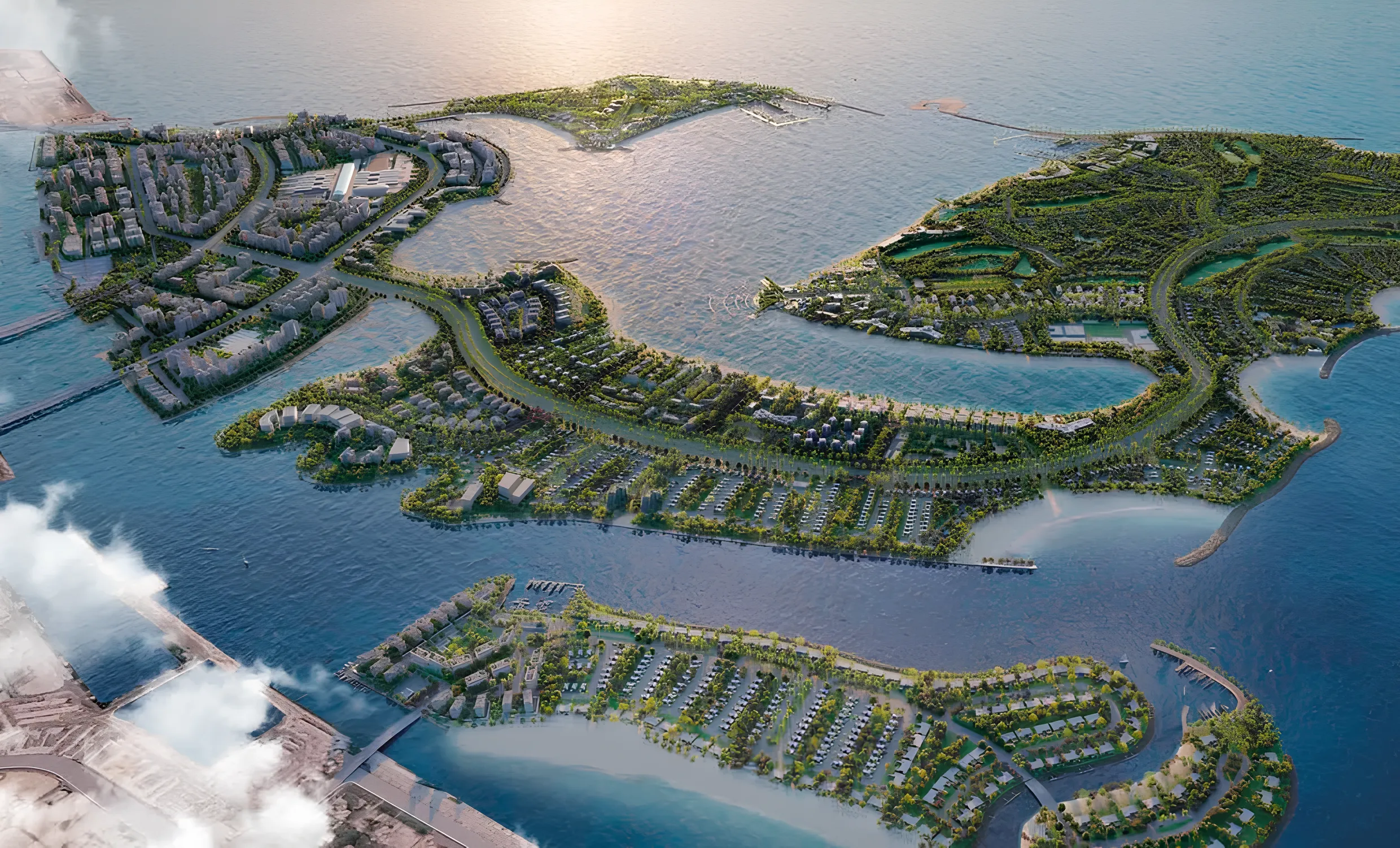Dubai continues to capture global attention. In the first six months of 2025, AED 431 billion (around €102.6 billion) worth of real estate changed hands. That’s a 25% increase compared to the same period last year, reaffirming Dubai’s position as one of the most dynamic property markets in the world.
And this growth doesn’t stand alone. With the population reaching 3.984 million residents – an increase of 208,000 people in just one year – it’s easy to see why the real estate market is experiencing such strong demand. More residents mean more need for homes, offices, and amenities. For investors, this is good news: a growing population fuels demand for housing, resulting in both price growth and solid returns.
The numbers: transactions in H1 2025
Dubai’s property market continues to set new records:
- AED 431 billion (€102.6 billion) in real estate transactions in the first half of 2025.
- 1.3 million transactions: sales, transfers, and rental contracts.
- 59,000 new investors, 45% of whom are UAE residents.
- AED 431 billion (€102.6 billion) in real estate transactions in the first half of 2025.
These figures indicate that Dubai remains highly attractive to international investors, while also attracting a growing number of local buyers. That’s important, as a broader buyer base makes the market more stable and less dependent on foreign inflows.
The combination of strong economic growth, favorable regulations, and attractive visa programs continues to fuel demand. Additionally, government initiatives such as the Dubai 2040 Urban Master Plan and large-scale investments in infrastructure and quality of life boost confidence among both homebuyers and institutional investors.
For investors, this means operating in a market with solid, fundamental growth, supported by both local demand and international interest, a rare combination that sets Dubai apart from many other global cities.
The role of population growth: nearly 4 million residents
In July 2025, Dubai’s population reached 3.984 million people, a 5.5% increase from the previous year.
(Source: DXBInteract).

This rapid growth is no coincidence: it aligns closely with the Dubai 2040 Urban Master Plan. This plan aims to transform Dubai into a city with the highest quality of life in the world, with the population expected to grow to around 5.8 million by 2040. To support this growth, Dubai is making significant investments in infrastructure, public transport, green spaces, and new residential and business districts.
For the real estate market, this has significant implications:
- Increased demand for homeownership: Expats and entrepreneurs settling in Dubai for the long term are seeking permanent homes.
- A strong rental market: The influx of new residents keeps rental prices high, ensuring stable and attractive returns for landlords.
- Demand across multiple segments: From luxury apartments to family-friendly villas in master-planned communities, population growth is driving activity across the market.
Dubai’s population growth is fueled by a mix of international professionals, entrepreneurs, and investors drawn by the city’s tax advantages, stable economy, and high quality of life. For investors, this creates a market with sustained demand and a government committed to supporting growth through active, future-focused policies.
What does this mean for Investors?
The combination of record transactions and population growth is more than just interesting data – it speaks to the health, liquidity, and resilience of the market:
- High liquidity: In a market where billions are traded, buying and selling are faster, giving investors the flexibility to adjust their strategies and seize opportunities.
- Strong rental income: The influx of residents, including expats, entrepreneurs, and families, drives demand for rental properties. Long-term rentals benefit from stable occupancy rates and strong yields, while short-term rentals continue to profit from steady tourism and business travel.
- Long-term appreciation: Historically, population growth in Dubai has driven significant price increases, particularly in high-demand areas. For investors, this presents an opportunity to enter emerging communities and benefit from future capital growth.
- Risk diversification: With demand across all property types, from studios to villas, investors can diversify their portfolios across segments with different benefits.
Which segments stand out?
Off-plan projects
Flexible payment plans and attractive entry prices make off-plan properties especially appealing. Developers are responding with phased projects, allowing investors to spread capital commitments and position themselves for future appreciation.
Luxury apartments
The luxury segment continues to perform well, driven by wealthy international investors. Projects by top developers such as Sobha, Emaar, and Nakheel remain highly sought after, particularly in areas like Downtown Dubai, Dubai Marina, and the Palm Jumeirah.
Family-friendly villas and townhouses
With more families relocating to Dubai, demand is rising for spacious homes in master-planned communities such as Dubai Hills, Arabian Ranches, and Damac Lagoons. This segment offers stable rental income and long-term lease opportunities, which makes it an attractive option for investors who prioritize security.
Will this momentum last?
While demand remains strong, some analysts caution that the large number of new units scheduled for delivery in 2025 and 2026, more than 200,000 homes, could ease the pace of price growth.
For investors, this makes selectivity more critical than ever. Projects in prime locations with proven demand are likely to hold their value and continue appreciating, while less desirable areas may face more price pressure.
Conclusion: Significant opportunities
With nearly 4 million residents and a half-year transaction volume of €102.6 billion, Dubai continues to prove itself as one of the most attractive real estate markets globally. For investors, opportunities abound, from high-yield off-plan projects to stable long-term rentals in family-friendly communities.
Considering investing in Dubai? Now is the time to explore the possibilities and capitalize on this market’s momentum.






























